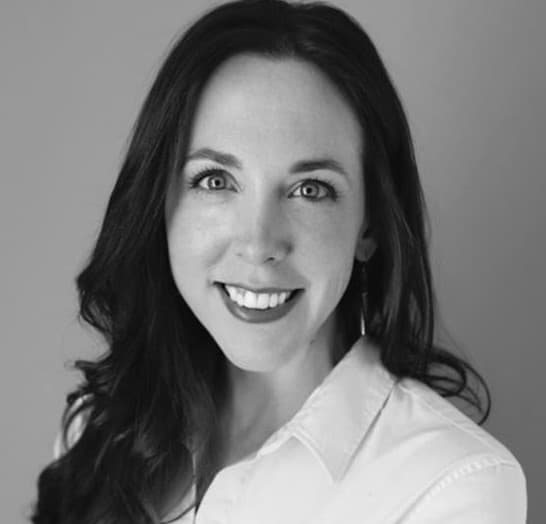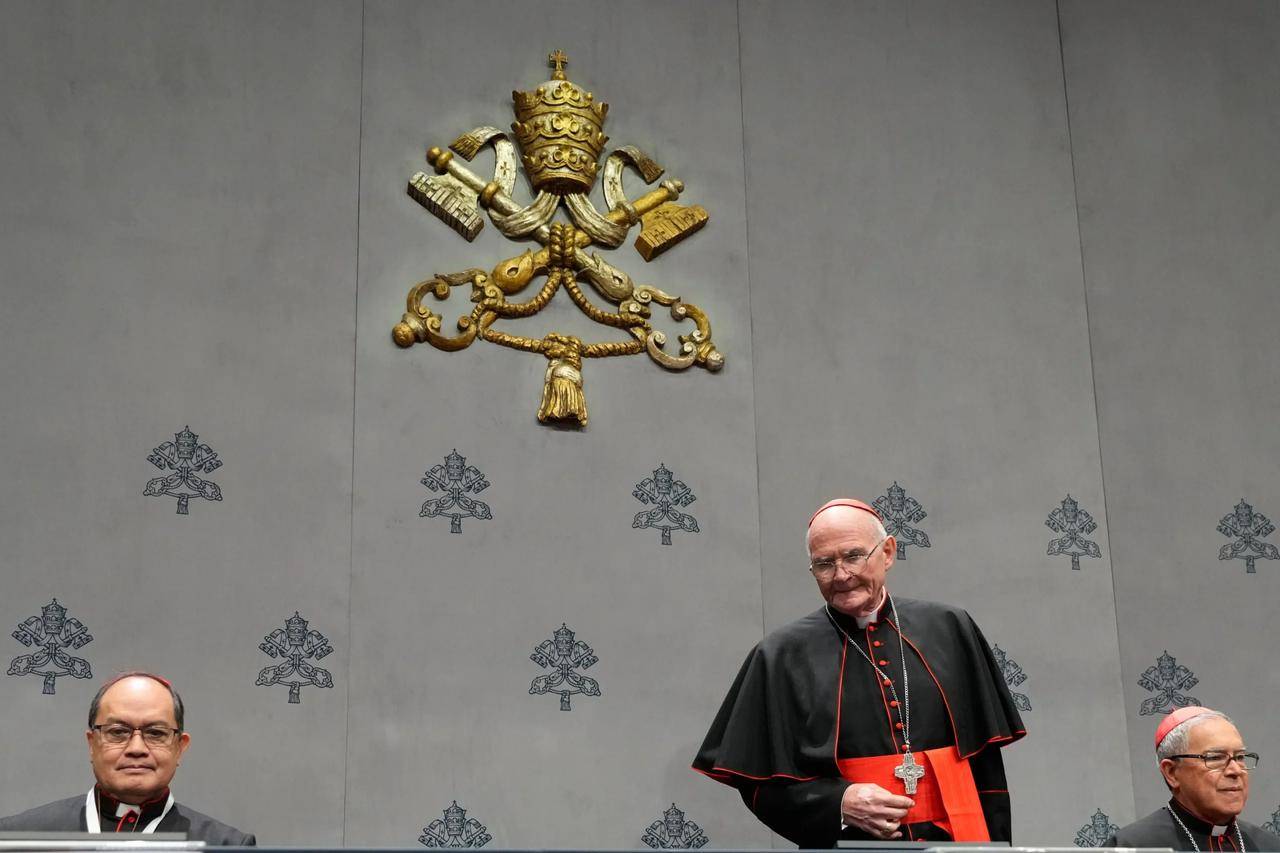[Editor’s Note: Erin King Younkins is an occupational therapist and author of Designed to Be Well: A Health Coach’s Guide to Navigating the Science and Spirituality of Wellness. She is currently the Coordinator for Outreach and Education in the Respect Life Office at the Archdiocese of Baltimore. She lives in Maryland with her husband and their six children. She spoke to Charles Camosy.]
Camosy: Congratulations on your position as Respect Life coordinator with the U.S. Church’s flagship: The Archdiocese of Baltimore. I couldn’t be more excited about your being hired in this new position, not least because of your very interesting background which led you here. Could you tell us a bit about that background?
Younkins: Thank you! Prior to beginning my position at the Archdiocese of Baltimore in the Respect Life Office this past July, I was an occupational therapist for about 19 years. Initially, I worked as a group home supervisor on Long Island for adults with mental health needs and cognitive impairment and then began working in subacute rehab in a continuing care retirement community. I also worked part time in school-based and home-based pediatric therapy.
After leaving New York, I worked for a while in Cary, North Carolina as a Director of Rehab in three retirement communities including a memory care facility. The majority of my career was in Maryland, where I live now, in over 20 facilities and home health all along the life spectrum, but primarily with adults. While I love working with all populations, I have a special place in my heart for those with dementia. After about 15 years in the field, I decided to pursue new ways of bringing wellness services to this population which grew into a small consulting company.
Ultimately, my efforts were driven by a desire to inspire and facilitate physical, mental and spiritual wellness for all people rooted in my Catholic faith and the belief that all human beings are valuable and created in the image and likeness of God. As my work evolved, I felt a strong desire to serve my Church more specifically and was blessed with the Coordinator of Outreach and Education position in the Respect Life Office in my home diocese.
What kind of priorities do you have in your new position?
The Respect Life Office here under the Department of Evangelization within this Archdiocese has a solid vision for missionary discipleship and the people in this role before me have done a wonderful job of growing the efforts and programs that are currently serving many populations here in Baltimore.
My priorities are to continue to provide ways to live out the Gospel of Life and to minister to all vulnerable people. Our Project Rachel retreats, Walking with Moms in Need initiative and support for local pregnancy centers are a crucial part of our ministry as well as our Holy Innocents ministry that provides burials and prayer services for families suffering pregnancy loss. On the other end-of-life spectrum, we have In Joyful Hope, which provides guidance, resources and support to people facing end-of-life issues.
I also believe that we should continue to cast our net wider and wider, not only in service to other vulnerable or discarded populations, but also as a way to unify our efforts and find common ground to build on. Not all Christians are aligned on their views of human life, but I believe we can inspire more people to fully embrace the Gospel of Life by addressing more issues that threaten the dignity of the human person. My hope is that ending human trafficking and improving the dignity of the aging are issues that we can more fully align and take action on which may allow people the opportunity to more seriously consider where they stand on all life issues.
Focus on end-of-life and elder care – particularly when it intersects with care of people with dementia – seems so timely. Especially given what the pandemic has revealed about all of this. How do you think the Church could help address these issues?
In my opinion, our current elder care structure is balancing on a shaky foundation. While most programs and institutions, both Catholic and non-Catholic, were born of a desire to care for our elderly, the decreasing health and increasing lifespan of our population is creating challenges faster than we are currently built to handle them. The cost of quality retirement communities or in-home care is out of reach for many families and the prevalence of dementia and other conditions like Parkinson’s that can cause similar cognitive impairment, continue to rise.
One in three Americans will have some form of dementia, Alzheimer’s being the most common, and will require a significant level of care in the final season of their life.
I have had the pleasure of working with wonderful nursing, therapy and caregiving staff on some pretty innovative memory care units and in home based services, but I have also seen many people with declining cognition living in places unable to provide them with adequate care. Proper nutrition and sufficient comfort are lacking in far too many facilities. Staff properly trained, educated and most importantly- supported by leadership are very hard to come by.
We are leaving our most vulnerable elderly to live out their days without the physical and spiritual care that they need and many feel lost and afraid. They are unable to speak for themselves and are too often denied a graceful death and dying experience.
I believe the Church can help in two ways. The first is to shine a light on the challenges we are facing. This can be a forgotten population despite the huge number of families dealing with these issues. Proactively educating people on preventative wellness, thoughtful end-of-life planning and how to best support the facilities in our communities is a great place to start.
Next, we need to be more thoughtful in how we support caregivers. There is a huge burden placed on adult children and spouses of people suffering from these health concerns, and even the most devoted family members need outside support. Our Catholic community can be better organized to assist these families and acknowledge the call to serve in these Corporal and Spiritual Works of Mercy.
Beyond that, I believe the Church can continue her history of innovation in healthcare and develop new ways to elevate the dignity of not only the aging person in need of care, but also of the workers serving them. Reimagining facilities and the delivery of in-home care will be essential moving forward.
I’ve had what might seem like an idealistic and unrealistic proposal for how the Church might respond to some of these problems. Tragically, we’ve lost so many Catholic schools recently, but I’ve been wondering if they could be repurposed as day care centers for older adults with memory issues, harkening back to their experiences of school in the 1950s and 1960s. I feel like the Church could do our elders and their families a great service with a project like this, but you’re the real expert. Could something like this be a benefit?
I love this idea! There are some great adult day centers around the country, but in my experience, we definitely need more. While some people require, or choose, to live in assisted living facilities or retirement communities, many others lack the community-based resources they need to age in place. Adult day centers and medical day centers can often provide the support that individuals and families need to make it possible to stay at home.
Most people desire to live out their days in their homes or at least surrounded by family and familiarity. By providing people with creative day time solutions, family caregivers can continue to work and care for children, while elderly family members are provided with stimulating and meaningful experiences outside of the home. As a therapist, I can attest to the fact, that people tend to live longer and healthier when they are mentally stimulated and given the opportunity for functional movement as well as the chance to spend time outdoors. Day centers can also provide the chance to bring different generations together, which is great for everyone. The chance for all of us to protect and minister to those who are losing their ability to think clearly and to advocate for themselves is one that we should gladly embrace.
Some scoff at pro-life leaders in the Church focusing on issues other than abortion. You and I have had chance to talk at length about this, and we both agree that a focus on issues like elder care makes our anti-abortion pro-life witness stronger, not weaker. Could you say more about why you think that?
I think St Teresa of Calcutta is a great example of this. She has so many powerful quotes about abortion and yet, she herself didn’t do much work in the pro-life movement with regard to abortion. Instead, her great devotion and life’s work was to the poor, sick and dying in India because that was where God called her. She demonstrated through her work that she valued every single life and therefore her thoughts and any advocacy against abortion that she participated in was taken seriously.
Not everyone is necessarily called to focus all of their pro-life efforts on ending abortion, but all are called to serve the universal pro-life cause. I pray that everyone, and certainly every Catholic, acknowledges the value of all human life from conception to natural death. We absolutely need to continue all of our efforts to end abortion and I hope that all Christians are willing to answer the call to elevate the dignity of others in whatever way God calls them. What is your life issue? I hope everyone can ask themselves that question and feel inspired to answer the call. Our efforts should be a rising tide that lifts all boats.














